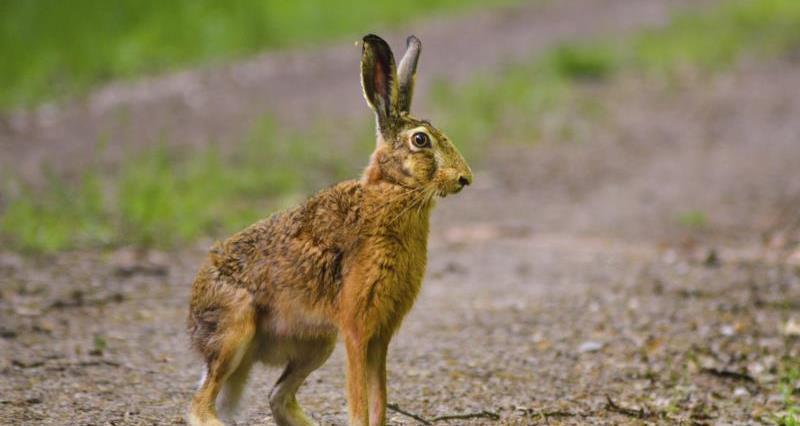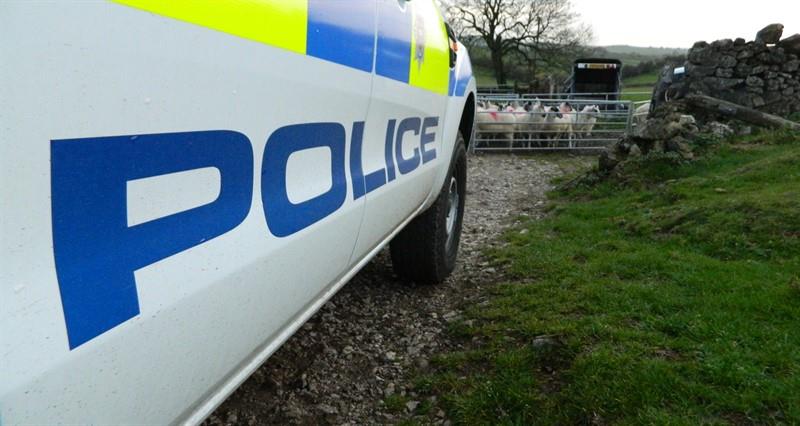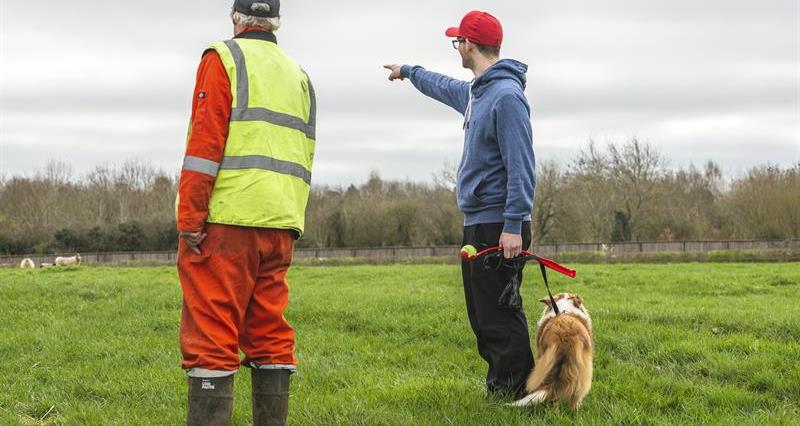We’ve been lobbying the government on hare coursing for many years, and the work has now paid off. The inclusion of amendments on hare coursing in the Police, Crime, Sentencing and Courts Bill is a testament to efforts right across the NFU and from our members.
The new legislation came into effect on 1 August 2022, and helps to deter hare coursers by giving police forces the means to seize more dogs and by lifting the existing limit on fines.
Two men in Lincolnshire are the first to have been charged, and now sentenced, under the new laws. The pair were hit with £13,000 worth of fines and costs under the new Bill. NFU Vice President David Exwood welcomed a “landmark” use of the hard-won legislation.
“The changes have given police more powers to protect rural communities from destructive and intimidating criminal activity, and we are now seeing this have an impact in the courts,” he said.
The Bill also means that unauthorised encampments will become a criminal offence for those who do not leave when asked by the landowner or tenant, and offenders will be hit with strengthened penalties.
NFU lobbying work
Countless NFU members hosted farm visits to help demonstrate to MPs the impact of hare coursing in their constituencies, resulting in MPs taking up the case with ministers.
This secured a commitment from government in the Queen’s Speech in May 2021 that new legislation on hare coursing would be introduced.
The Police, Crime, Sentencing and Courts Bill was a new, and large, piece of legislation from the Home Office. The influential former farming minister Sir Robert Goodwill MP began testing the water on whether this Bill could be a vehicle for hare coursing measures by tabling some amendments along the lines of what the government has now introduced.
Despite government assurances that it would look to act on this, no plans were forthcoming.
A powerful deterrent
“It is fantastic to see that the hard-won legislation as part of the Police, Crime, Sentencing and Courts Act has given the police more powers to protect rural communities.”
NFU Vice President David Exwood
What do the changes mean?
Changes to hare coursing law include:
- Increasing the maximum penalty for trespassing in pursuit of game to an unlimited fine and introducing the possibility of up to six months’ imprisonment.
- New powers for the courts to order convicted offenders to reimburse costs incurred by the police in kennelling dogs seized in connection with a hare coursing-related offence.
As the Bill moved to the House of Lords, we then worked very closely with the Bishop of St Albans, a champion of rural issues, to continue to take the issue forward. When he spoke in the Lords, he received wide-ranging support across the political parties.
A number of Peers set out how they had themselves been victims of hare coursing.
The Bishop of St Albans commented: “Many colleagues from all sides of the House have heard the terrible and frightening stories of the rural communities who have been subject to illegal hare coursing or indeed have been unfortunate enough to experience it themselves.”
At the same time, we were using our strong constituency links with North East Bedfordshire MP Richard Fuller who agreed to table a Private Members’ Bill, again focusing on strengthening the laws to tackle illegal hare coursing.
With the pressure from MPs and Peers rising, the government acted and now the new and extremely welcome legislation is on the statute books.
NFU Vice President David Exwood acknowledged the huge toll these crimes take on farming businesses and families, and reiterated the NFU’s commitment to working with “government and rural police forces to ensure these strengthened laws are utilised to deliver meaningful results – a decline in cases of rural crime”.
In 2021, 70,000 members of the public backed our campaign calling for immediate action to tackle rural crime to create a safer, cleaner and greener rural Britain, with particular strength of feeling around action to tackle fly-tipping and dog attacks on farm animals.
Hare coursing – a timeline
Then-NFU Deputy President Minette Batters meets Chief Constable Dave Jones, the National Police Chiefs’ Council (NPCC) lead on rural crime, the first high-level meeting between an NFU officeholder and a national police lead.
The NFU’s Combatting Rural Crime Report is launched in the House of Commons.
The NFU holds its first Hare Coursing Summit to overcome inconsistencies in hare coursing sentencing across police force and CPS areas. The NFU hare coursing video is also launched.
NFU President Minette Batters presents at the Chief Constable's Council on rural crime and hare coursing.
NPCC rural crime lead, Craig Naylor, and Chair of the National Rural Crime Network, Julia Mulligan, present to NFU Council.
The NFU is the sole farming organisation at the Rural Crime All Party Parliamentary Group, briefing the current Home Office and Ministry of Justice ministers.
Hare coursing legal guidance is produced by the CPS as a direct result of the NFU’s Hare Coursing Summit.
The NPCC Rural Affairs Strategy is launched to increase the level of awareness of poaching and hare coursing as serious wildlife crimes and build better trust and relationships between law enforcement agencies and local communities.
A hare coursing roundtable is hosted by NFU Sugar Board chair Michael Sly in Cambridgeshire.
The NFU establishes a hare coursing coalition alongside the Countryside Alliance and the CLA.
Then-Defra Minister Lord Gardiner talks about hare coursing on farm in Dorking.
The coalition writes to Defra and the Home Office suggesting the government adopt its action plan on hare coursing. Their reply says there are no plans to amend the Game Act.
The NFU presents at a government roundtable discussion on hare coursing.
The NFU provides a briefing to Gordon Henderson MP ahead of a Westminster Hall debate on hare coursing.
During the Queen’s Speech, the government announces legislation changes on hare coursing as part of its Action Plan for Animal Welfare. Following this announcement, the NFU's chief land management adviser Sam Durham begins fortnightly meetings with the Defra team drafting the legislation.
Richard Fuller MP tables the Private Members Bill on hare coursing after ongoing discussion with the coalition.
Sam Durham presents to the Defra hare coursing roundtable hosted by minister Rebecca Pow. Robert Goodwill MP tables amendments at the committee stage of the Police, Crime, Sentencing and Courts Bill in the House of Commons.
The NFU supports Crimestoppers' rural crime campaign with a focus on hare coursing.
The Bishop of St Albans tables similar amendments to the PCSC Bill when it moves to the House of Lords.
The coalition writes a letter to Peers.
The government sets out plans to strengthen powers and penalties available to tackle hare coursing through the PCSC Bill.
The House of Lords votes in favour of government amendments and the Bill will go back to the House of Commons before Royal Assent.
The Bill receives Royal Assent.




